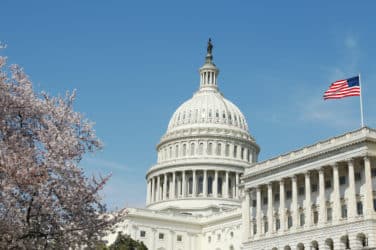If you cannot regulate the users of virtual currencies, regulating their markets may be the next best thing.
US Securities and Exchange Commission Jay Clayton called out these exchanges in his written testimony before the US Senate Committee on Banking, Housing, and Urban Affair’s hearing on virtual currencies.
He reasoned that if they call themselves exchanges and quotes like exchanges, they probably should be regulated like exchanges.
However, the SEC nor the Commodity Futures Trading Commission currently do not have the power to regulate the trading of digital currencies. They only have enforcement capabilities. The SEC can regulate securities issuances and trading while the CFTC overseas listed and over-the-counter derivatives based on digital currencies.
The approximately 25 crypto exchanges in the US currently operate as money transfer services, which states oversee and not the Federal government.
Some jurisdictions go beyond enforcing just MTS regulation. In 2015, The New York State Department of Financial Services issued its final rules for BitsLicenses, which requires licensees to establish anti-fraud, anti-money laundering, cybersecurity, privacy and information security policies to protect their clients.
Other states are working in conjunction to regulate their respective money-transfer businesses. Earlier this week, the states of Georgia, Illinois, Kansas, Massachusetts, Tennesse, Texas, and Washington agreed to recognize each other’s findings when assessing the suitability of companies applying for money service business licenses, which are the on-ramp for most fintech startups, reported Reuters.
Clayton noted in his testimony that typical money-transfer businesses do not offer the same services that Federally regulated markets.
He has proposed that the SEC, CFTC, and the state governments work with Congress to determine if it is appropriate for the Federal government to regulate digital currencies and the exchanges that trade them.
In other words, Clayton is proposing that 50 state attorneys-general surrender a portion of their power to protect the financial well-being of their voters to the Federal government.
I do not see this happening.
The regulators, as well as the Department of the Treasury and FinCEN, could always play the national security card.
Earlier this year Venezuela leader Nicolas Maduro declared the pre-sale of his nation’s “petro” virtual currency, which is backed by the country’s petroleum and precious stones. Even more recently, he has lobbied OPEC and non-OPEC oil producers to adopt the currency for payment of their oil. While a hemisphere away, Russia also is floating the idea of issuing its own digital currency.
In either case, the US government does not want either country to evade existing sanctions.
Whether the response to digital currency regulation will be from one Federal government or 50 state governments, it is going to take time, a lot of time.





